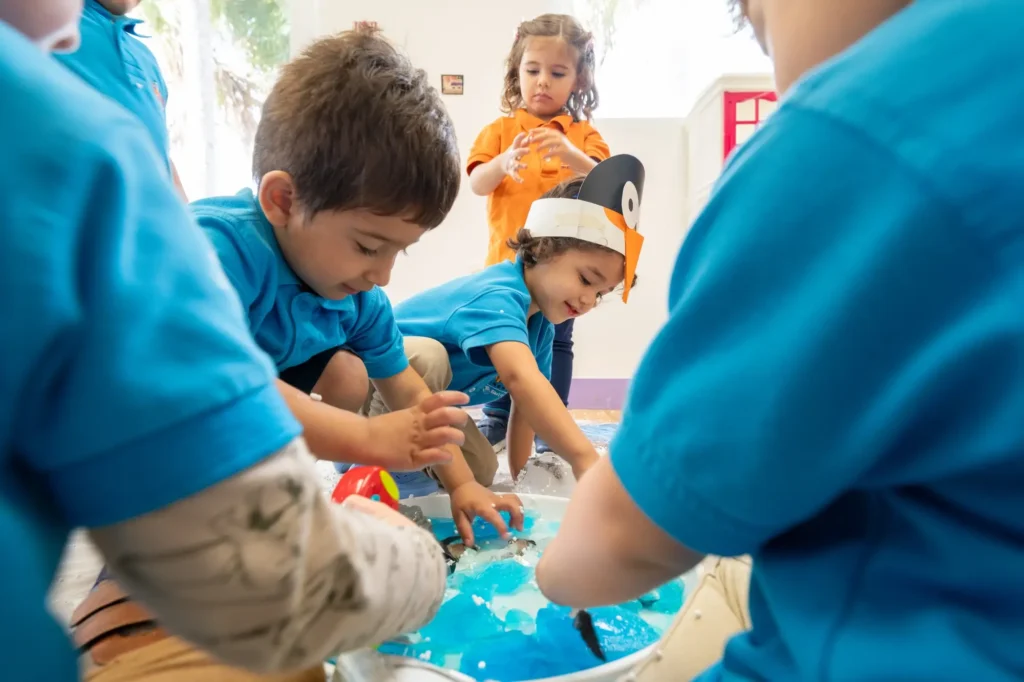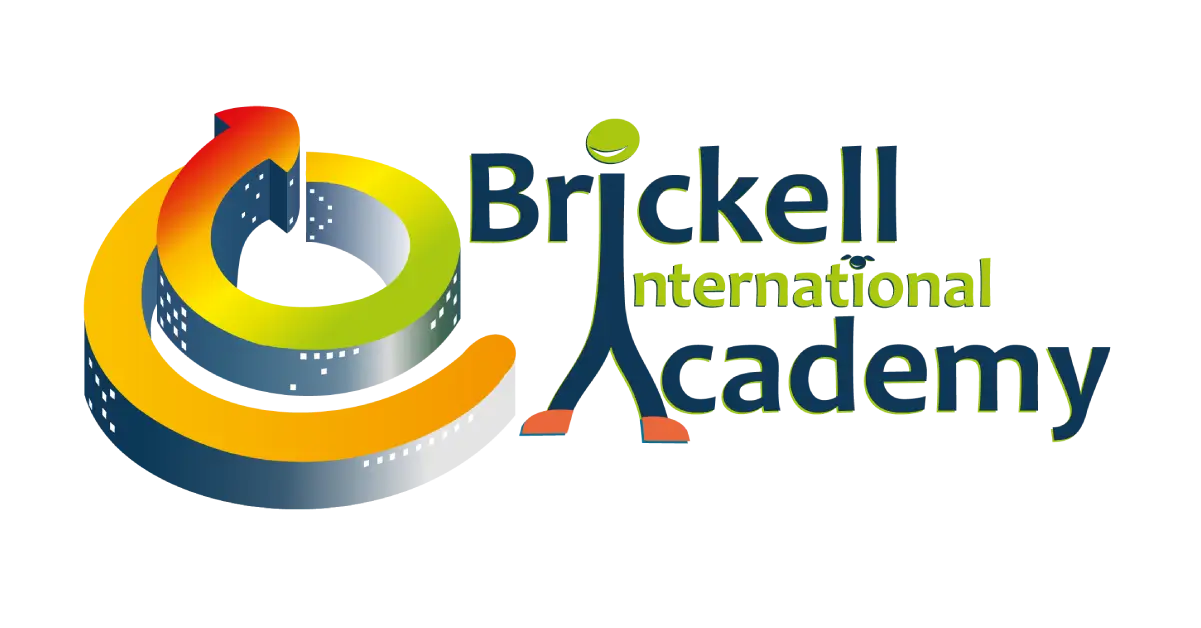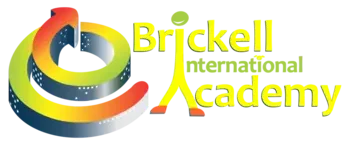THREES

Threes
3 - 4 Years
As your little one turns Three, their inquisitive mind is more active than ever. Important developmental changes occur, including a shift from parallel (or independent) play to shared play, and they have an increased ability for independence, comprehension and verbal expression. Our PK3 Program takes advantage of three year olds’ eagerness for discovery and contribution and places children in an environment built to potentiate each child.
Our PK3 Program continues to focus on whole-child development, so there is a more evident focus on school-readiness skills, yet emotional education, inquisitiveness, scientific thinking, citizenship, creativity and innovation, and high-level thinking skills are equally nurtured.
Though pre-reading and pre-writing skills were fostered in our Two’s program, three year olds are now ready to take them a step further. We work on fine motor skills for writing. We focus on letter phonics (how letters sound), which is proven to facilitate children’s reading and writing process. Mathematical concepts like number sense (the understanding of what a number means and the concept of quantity), patterns, sequences, and geometry in the real world, are all a strong focus of our program towards school readiness, and we do so through exciting and meaningful learning experiences that fosters children’s desires to WANT to learn.
Our Teachers take a “mentor” role, and our small group set-up encourages the sharing of ideas and teamwork. Our main goal is autonomous little learners with the tools and desire to discover the world! Read ahead to learn the details of our VESS educational approach for 3 year olds.
Abilities Fostered
A key goal of our educational program is to nurture autonomous, life long learners, because learning autonomy has been proven to be a key determinant of life success. Learning autonomy starts with sparking curiosity and inquisitiveness, from birth! How do we promote inquisitiveness?
Click to learn more...
We consider all children as unique individuals with multiple developmental needs. We focus on developing the whole child to their unique potential. Every experience is a learning experience carefully crafted by our teachers. We focus on multi-sensory exploration, which naturally develops your child holistically. Click to learn more...
At 3 years of age, children increase their capacity to express verbally and pose questions about the world around them. What an exciting time! With a school environment that values children’s questions about the world comes an opportunity to promote a scientific mindset. Click to learn more...
Our VESS curriculum fosters development through strategies that promote higher level thinking skills.Higher-level thinking refers to our ability to do certain mental processes more efficiently, making us better learners. This ability is fostered by developing what neuro-scientists have called Habits of Mind – a mental process that, with practice, we do routinely and naturally, turning it into a mental habit. Click to learn more...
Creativity and Innovation are at the core of the VESS educational approach. Every moment and learning experience focuses on promoting creativity.Through our Artist of the Month, for example,babies are exposed to artists’ stories, techniques, and how they use colors, shapes and lines uniquely to express their emotions. Click to learn more...
All children in our school are seen as global citizens, including our babies. Our babies’ voices are heard as teachers are in tune to their needs, wants, and preferences, and respond to them. Click to learn more...
Learning autonomy refers to the skills and dispositions needed to be independent in one’s capacity to learn new things – and its development starts at birth! It is seen by neuroscientists as a key determinant of life-long success. The VESS educational approach focuses on developing children’s learning autonomy to be efficient learners for life. Click to learn more...
Developmental Areas for Three Year Olds
Self Knowledge, Personal Awareness, Social and Emotional Development
relationships with adults and peers
- Emotional functioning
- Managing emotions
- Sense of identity and belonging
Communication, Language & Literacy
- Speaking and communication
- Conversation
- Emergent Reading
- Emergent Writing
- Vocabulary
Mathematical Thinking
- Numbers and operations
- Spacial Relations
- Patterns
- Measurements and data
- Geometry
Scientific Thinking
- Engineering and Technology
- Environment
- Life Sciences / Biology
- Physical Sciences / Physics
- Scientific Inquiry, Exploration and Discovery
Approaches to learning
- Eagerness and curiosity
- Persistence
Creative Expression Through the Arts
- Creative movement
- Imaginative and creative play
- Music
- Sensory Art Experience
Social Studies
- Economics and resources
- Governance, Civic Ideas and Practices
- Individual Development and Identity
- Individuals and groups
- Spaces, Places and Environments
- Technology and our world
- Time, Continuity and Change
Physical Development
- Feeding and Nutrition
- Fine motor development
- Gross motor development
- Gross motor perception (sensorimotor)
- Health
- Personal care routines
- Safety




